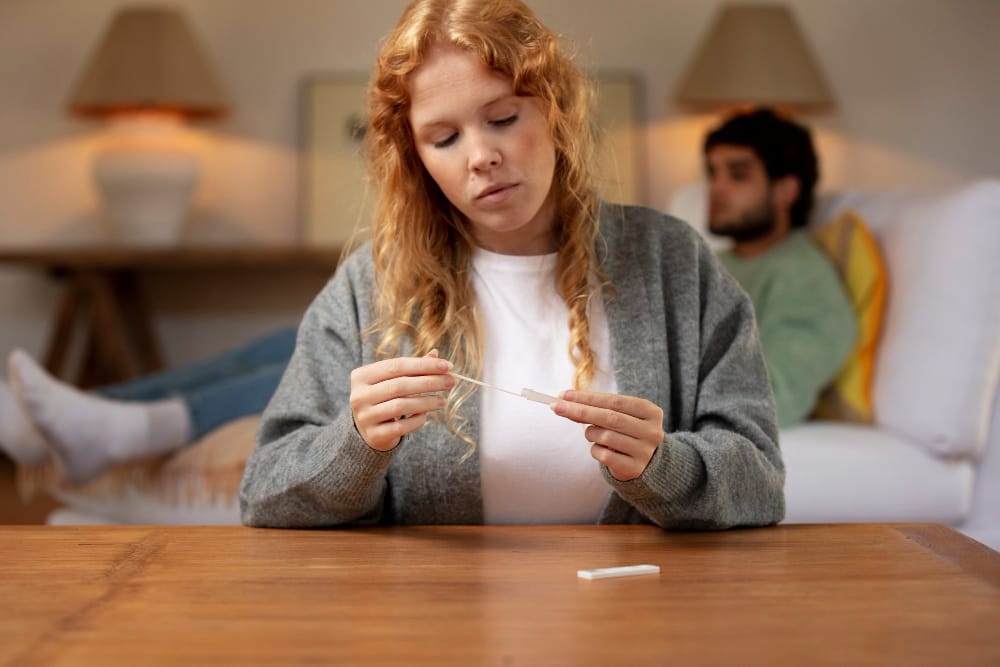How Smoking Affects Fertility, Sexual Health, and ED—and How to Heal Naturally


Written By: Aman Doda
Last Updated: 13/11/2024


- How smoking disrupts fertility and sexual health in both men and women.
- Why ED is a direct result of smoking, and how quitting can reverse it.
- The role of hormones, blood flow, and lifestyle in recovery.
- Nutrition and practical steps to speed up healing.
- FAQs about fertility, ED, and quitting smoking.
- 01: Introduction
- 02: How Fertility Works—and How Smoking Disrupts It
- 03: How Smoking Damages Fertility: Step by Step
- 04: Smoking and ED: Why Blood Flow is Everything
- 05: How Quitting Smoking Restores Fertility and Sexual Health
- 06: Nutrition and Lifestyle Tips for Faster Recovery
- 07: Addressing the Root Cause: Why Quitting is Non-Negotiable
- 08: FAQs: Smoking, Fertility, and ED
- 09: Conclusion: Reclaim Your Health and Future
Introduction: Smoking Quietly Takes Away More Than You Realize
When we think about the harm caused by smoking, most people picture damaged lungs or an increased risk of heart disease. But smoking also affects parts of your life that are just as important—your fertility and sexual health.
For men, smoking is a common cause of erectile dysfunction (ED), low testosterone, and poor sperm quality. For women, smoking disrupts hormones, damages eggs, and reduces the chances of conception—all while bringing menopause closer. These issues often appear gradually, making it hard to realize the connection between smoking and your struggles until much later.
But there’s hope. The moment you quit smoking, your body begins to heal. With the right habits, proper nutrition, and time, you can reverse much of the damage and restore both your fertility and confidence.
Did You Know? Smoking doesn’t just harm your health—it also affects your wallet, time, and relationships. Discover the hidden financial and social costs of smoking in this blog.
Let’s break this down step by step.


How Fertility Works—and How Smoking Disrupts It
For Men: The Sperm Factory
In men, fertility depends on:
- Sperm Count: The number of sperm produced.
- Sperm Motility: The ability of sperm to swim toward the egg.
- Sperm Morphology: The shape of the sperm, which determines their ability to fertilize an egg.
Sperm production happens constantly, but the entire cycle takes about 3 months. That means any damage done today will affect sperm 90 days from now.
For Women: The Egg Reserve
Unlike men, women are born with all the eggs they’ll ever have. Over time, eggs age and their quality declines. Fertility depends on:
- Hormonal Balance: Proper levels of estrogen and progesterone.
- Egg Health: Healthy eggs increase the chances of successful fertilization.
- Uterine Lining: A healthy uterus is essential for implantation and pregnancy.
Because eggs can’t regenerate, damage caused by smoking is permanent. However, quitting smoking can protect the remaining eggs and improve overall reproductive health.
Learn how others quit naturally—no pressure, no struggle. Download the ebook.
How Smoking Damages Fertility: Step by Step
For Men: The Sperm Story
- Fewer Sperm: Smoking reduces sperm count by up to 23%, making it harder to conceive.
- Weaker Motility: Nicotine and toxins slow down sperm, reducing their ability to reach the egg.
- DNA Damage: Oxidative stress caused by smoking damages the genetic material in sperm, increasing the risk of miscarriage or birth defects.
For Women: The Egg and Hormonal Disruptor
- Egg Damage: Free radicals in cigarette smoke attack healthy eggs, reducing their viability.
- Hormonal Imbalance: Smoking lowers estrogen, leading to irregular periods and difficulty ovulating.
- Blocked Fallopian Tubes: Chemicals in cigarettes cause scarring in the fallopian tubes, increasing the risk of ectopic pregnancy.
- Weakened Uterus: Smoking reduces blood flow to the uterus, making implantation harder.


Smoking and ED: Why Blood Flow is Everything
How Erections Work: A Quick Science Lesson
- Your brain sends signals to the blood vessels in your penis, telling them to relax.
- This allows blood to flow into the spongy tissue, like filling a balloon.
- The blood is trapped, creating a firm erection.
Now, here’s how smoking disrupts this process step by step:
- Narrowed Blood Vessels: Nicotine and other chemicals stiffen and narrow blood vessels, reducing blood flow to the penis.
- Reduced Nitric Oxide: Smoking damages the cells that produce nitric oxide, a molecule that helps blood vessels relax.
- Temporary Tightening: Nicotine causes blood vessels to shrink every time you smoke, making it harder for blood to flow during arousal.
- Lower Testosterone: Smoking reduces testosterone, leading to low libido and stamina.
- Oxygen Deprivation: Carbon monoxide in cigarettes replaces oxygen in your blood, weakening tissues over time.
👉 Result: Weaker erections, reduced stamina, and lower confidence.
If you’re struggling with anxiety or confidence issues related to ED, read more about how smoking impacts emotional health here.
How Quitting Smoking Restores Fertility and Sexual Health
For Men
- Within 2 Weeks: Blood flow improves, helping with ED.
- Within 3 Months: Sperm count, motility, and quality start recovering.
Long-Term: The risk of DNA-damaged sperm decreases.


For Women
- Within 1 Month: Hormonal balance improves, leading to regular cycles.
- Within 3-6 Months: Uterine lining heals, increasing the chances of conception.
- Long-Term: Reduced risk of miscarriage and early menopause.
Nutrition and Lifestyle Tips for Faster Recovery
Foods That Heal
- Antioxidants: Neutralize oxidative stress caused by smoking.
Eat: Blueberries, spinach, oranges. - Omega-3s: Improve blood flow and hormone production.
Eat: Salmon, flaxseeds, walnuts. - Vitamin C: Strengthens blood vessels and boosts sperm/egg health.
Eat: Citrus fruits, strawberries, bell peppers. - Folate (Vitamin B9): Supports egg health and fetal development.
Eat: Avocados, lentils, leafy greens.
Lifestyle Tips
- Exercise Regularly: Improves blood flow and hormone balance.
- Hydrate: Flushes out toxins faster.
- Prioritize Sleep: Sleep is when your body repairs itself.


Extra Support: QSFS Personalized Recovery Plans
At Quit Smoking Freedom System (QSFS), we believe that your journey doesn’t stop after quitting. Recovery is a key part of rebuilding your body and living a healthier, happier life.
That’s why, as part of the QSFS program, we offer personalized meal plans to help you recover faster and more effectively. Our expert coaches work with you to create a plan that focuses on:
- Boosting fertility with the right nutrients.
- Improving circulation and repairing blood vessels.
- Balancing hormones to enhance physical and emotional well-being.
- Accelerating the healing of oxidative stress caused by years of smoking.
This personalized plan is tailored to your unique needs, ensuring you get the maximum benefit during your post-smoking recovery
Addressing the Root Cause: Why Quitting is Non-Negotiable
While fertility treatments like IVF and hormone therapies can help, they’re often temporary fixes if smoking continues. Quitting smoking tackles the root cause of the problem, allowing your body to heal naturally and making other treatments more effective.
FAQs: Smoking, Fertility, and ED
For men, sperm health improves within 3-6 months. For women, hormonal balance and uterine health improve within 1-3 months
Some damage (like egg loss) is irreversible, but quitting can significantly improve overall fertility.
Yes, nicotine in vaping products disrupts hormones and damages reproductive cells.
In most cases, yes. Quitting smoking improves blood flow and testosterone levels, reversing ED over time.
Conclusion: Reclaim Your Health and Future
Smoking doesn’t just harm your lungs—it impacts your confidence, relationships, and dreams of starting or growing a family. But it’s never too late to quit. With every smoke-free day, your body begins to heal, and the effects on your fertility and sexual health become more and more reversible.
By quitting smoking and making simple lifestyle changes, you can reclaim control over your body, your future, and your happiness.
Take the first step today—because a smoke-free life is a better life.
Add Your Heading Text Here
Share via:
